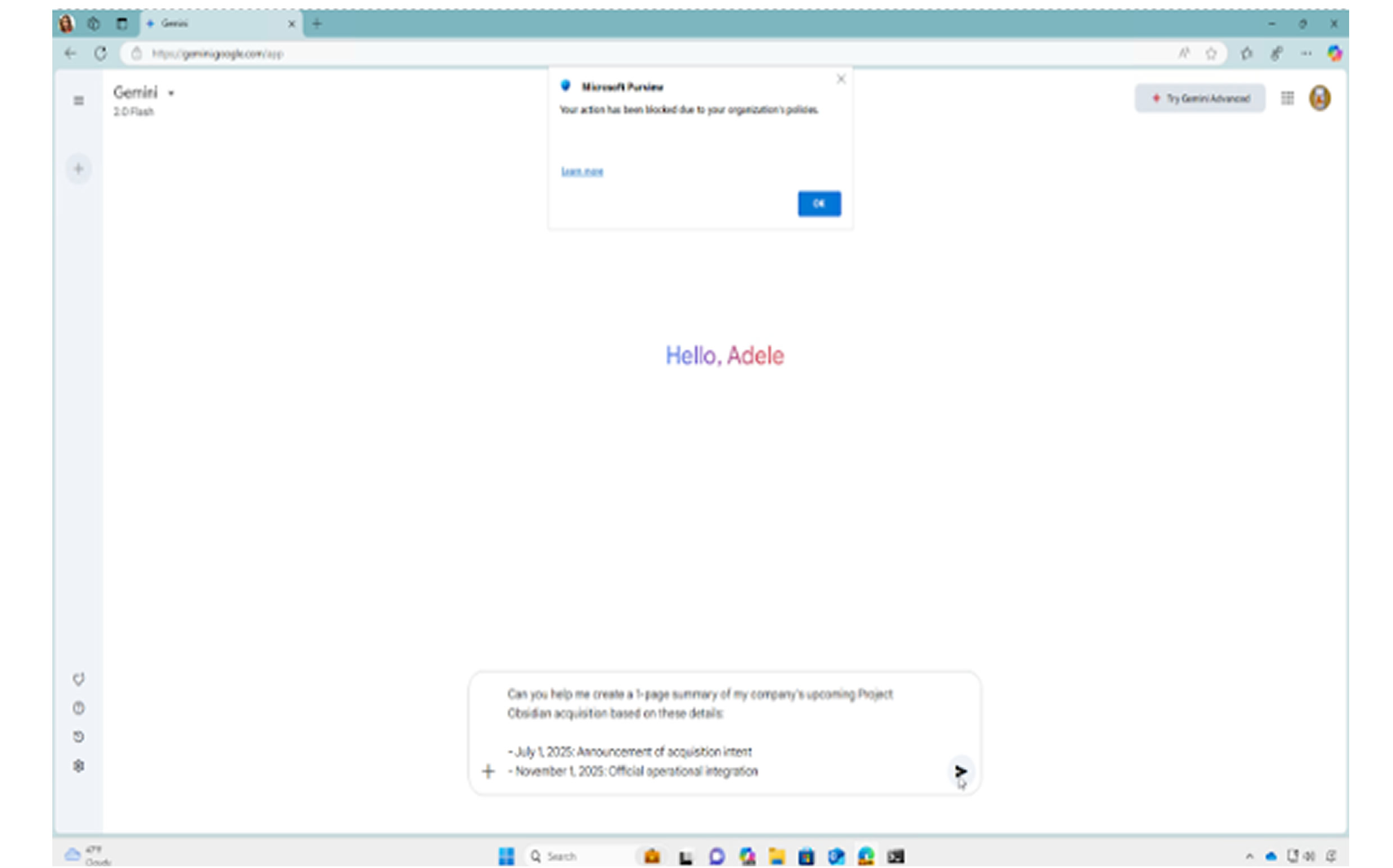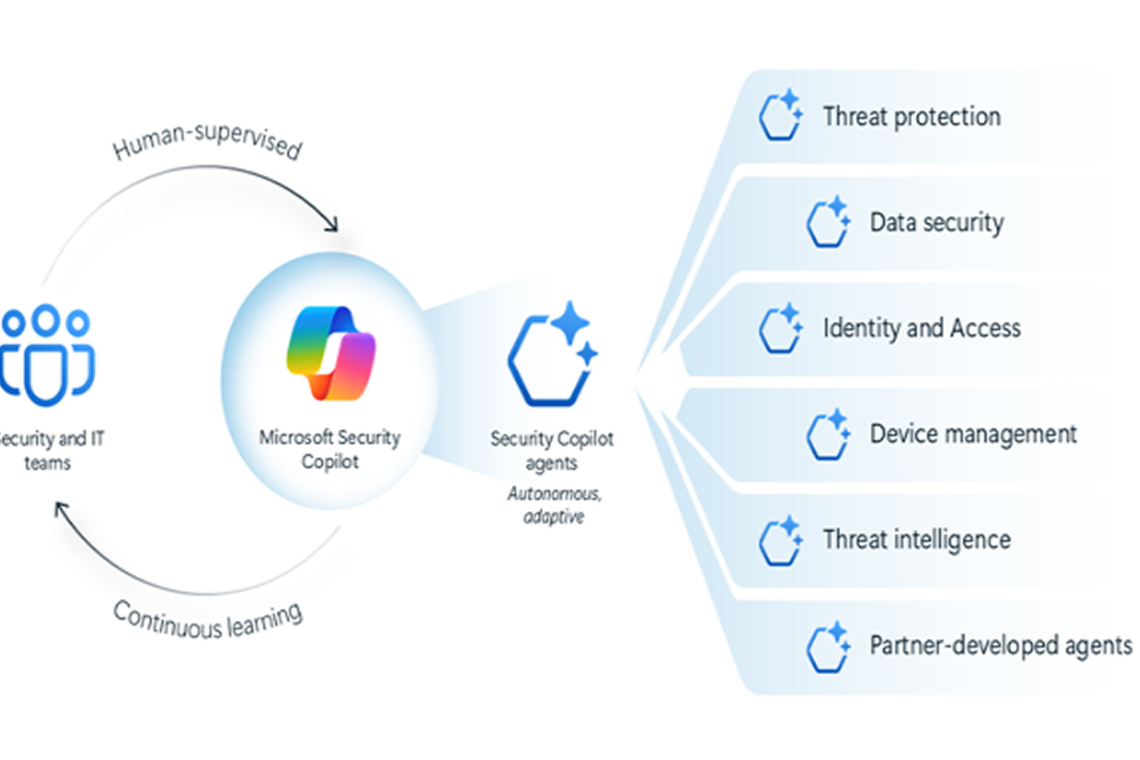Microsoft has introduced a new inline data protection feature for its Edge for Business web browser, aimed at preventing employees
from sharing sensitive company data with consumer generative AI (GenAI) applications like OpenAI ChatGPT, Google Gemini, and DeepSeek. Over time, this protection will extend to include email, collaboration, and social media platforms. The feature is designed to mitigate data leakage risks by restricting how users interact with sensitive information in the browser, whether through typing directly into web applications or submitting prompts to AI tools. Microsoft has integrated this security measure with Microsoft Purview’s data loss prevention (DLP) controls to enhance enterprise data security.
In addition to strengthening data security in Edge for Business, Microsoft has also announced the general availability of collaboration security for Microsoft Teams, aimed at combating phishing threats that target enterprise users. In recent months, cybercriminal groups such as Storm-1674 and Storm-1811 have exploited Microsoft Teams to trick users into downloading malware or granting remote access, often leading to ransomware attacks. The newly introduced security controls allow IT administrators to define which tenants, domains, and users can communicate with employees, enhancing protection against unauthorized access. Additionally, the update includes real-time protection against malicious links and attachments, preventing users from interacting with harmful content. Microsoft has also improved the reporting mechanisms for employees to flag suspicious messages, helping security teams respond more effectively.

To further enhance security, Microsoft has introduced a real-time detonation process where suspicious files and URLs are automatically executed in a secure sandbox environment to detect potential threats. This method ensures that harmful content is identified and neutralized before users can access it, strengthening defenses against sophisticated phishing and malware attacks.
Microsoft is also expanding Security Copilot, adding 11 new AI-driven security solutions, including five developed by third-party partners. These AI agents will assist organizations in analyzing data breaches, prioritizing critical alerts, performing root cause analysis, and improving compliance and risk management. Beginning next month, Microsoft will preview Security Copilot AI agents that focus on phishing alert triage, data loss prevention, insider threat monitoring, vulnerability detection, remediation, and threat intelligence curation based on an organization’s security exposure.
According to Vasu Jakkal, Corporate Vice President at Microsoft Security, the increasing volume and complexity of cyberattacks have surpassed human capabilities, making AI-driven security automation essential. Jakkal emphasized that Security Copilot’s phishing triage agent will handle routine phishing incidents, allowing security teams to focus on more advanced threats and proactive defense strategies.
These updates reflect Microsoft’s ongoing commitment to leveraging AI to enhance cybersecurity, helping enterprises strengthen defenses against evolving cyber threats while reducing the burden on security teams.
Found this article interesting? Follow us on X(Twitter) and Instagram to read more exclusive content we post.


